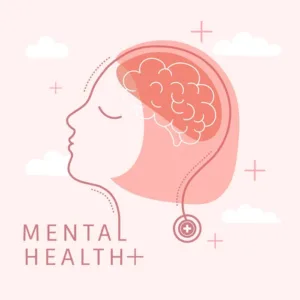While no one is really sure why we have nightmares and What are nightmares trying to tell you? However, research reveals that they are more frequent in persons with certain mental health disorders, such as post-traumatic stress disorder (PTSD). Nightmares are the disturbing experiences that make us wake up in the middle of the night, puzzle us with their causes.
In this informative paper, we will venture into the world of nightmares, analysing the different factors that lead to their occurrence. We are going to share statistics and use reliable sources in order to explain the issue of why we have nightmares.

Why we have Nightmares ? Top 5 Reasons
Basics of The Science Behind Nightmares:
Nightmares, which are considered as realistic and distressing dreams usually have a scientific explanation. One of the main factors is rapid eye movement (REM) sleep which is a stage of the sleep cycle that is associated with increased brain activity. In REM sleep our brains are more active, dealing with emotions and memories. This can be manifested by heightened activity which may lead to vivid dreaming experiences including nightmares.
Psychological Triggers:
A number of psychological factors play a part in why we have nightmares. Stress, anxiety and trauma are among the common triggers. Studies by the APA show that persons with high levels of stress tend to have nightmares. As well, unresolved trauma or past bad experiences may present as nightmares.

Medications and Substance Use:
Some medications and substances can change the frequency and intensity of nightmares. Medications that affect neurotransmitters or change sleep patterns can also be a cause of vivid dreaming. Also drugs such as alcohol or recreational substances can interfere with normal sleep patterns, thus increasing the risk of having nightmares.
Sleep Disorders:
Sleep disorders like sleep apnea or insomnia are a major contributor to Why We Have Nightmares ? Sleep disruptions or insufficient sleep may cause nightmares. Recognizing and dealing with the underlying sleep problems usually reduces the number of nightmares.
Cultural and Societal Influences:
Cultural and societal factors influence the content of nightmares. Different cultures can have their own unique symbols or archetypes which are present in dreams. In addition, societal stressors, like economic uncertainties or global events, can affect the collective psyche, possibly resulting in an increase in shared nightmares among communities.
Are nightmares are actually warnings ? and What are nightmares trying to tell you?
The mysterious and at times disturbing nature of nightmares has led many to ask if these intense and scary dreams have a greater meaning. Some theories propose that nightmares could be warnings or messages from the subconscious mind which urges people to focus on the underlying issues.
1. Evolutionary Perspective:
One view suggests that nightmares could have developed as a survival mechanism. Survival in human history has been contingent on the ability to identify and react to threats. Nightmares, in this perspective, could be a way the brain practices threatening scenarios, thus equipping people to respond more effectively in similar real life events. This evolutionary theory postulates that nightmares are a form of rehearsal for facing potential threats.

2. Processing Emotions and Stress:
Nightmares are often filled with emotionally charged content reflecting fears, anxieties, and unresolved emotions. Psychologically speaking, nightmares could be a way of dealing with strong feelings. Through the manifestation of these emotions during sleep, the mind could be trying to deal and find solutions to the problems that may be causing the distress in the waking days.
3. Symbolic Communication:
Why we have nightmares is also important when we view that suggests that nightmares convey symbolic messages from the unconscious mind. Symbols and metaphors in dreams are the representation of the thoughts and feelings that the conscious mind is not fully aware of. Nightmares in this sense are a form of symbolic communication which asks people to discover and decode the hidden part of their psyche.
4. Highlighting Unresolved Issues:
Nightmares are usually related to personal fears, present or childhood traumas or unresolved conflicts. Some psychologists believe that the disturbing dreams may be a signal for the spots in life which need to be looked into and resolved. Through highlighting unsettled matters, nightmares may motivate people to face and deal with their problems in a deliberate and conscious way.
5. Cultural and Personal Significance:
In some cultures dreams including nightmares are given symbolic meaning. Others see nightmares as communications from the spiritual world or the subconscious mind, giving valuable information about one’s life journey or the right choices to make. Personal beliefs and cultural contexts affect how people give meaning to their nightmares.
Although these perspectives give interesting insights into the possible purpose of nightmares, the scientific understanding of dreams, including nightmares, is still in the process of development. The interpretation of dreams remains a field of subjectivity and complexity, where individual experiences differ considerably.
Thus, nightmares are a multifaceted phenomenon, affected by scientific, psychological, and cultural aspects. Through knowledge of the various triggers and contributors, people can take a proactive approach to managing and answering as why we have nightmares. With the ongoing study of the human mind and sleep, dealing with the root causes of nightmares becomes an integral part of overall wellness.
Statistics:
To give a quantitative view, let us look at some related figures. As per a study published in the Journal of Sleep Research, about 8% of adults have nightmares at least once a week. A second poll carried out by the National Sleep Foundation showed that 49% of teens report having nightmares at least once a month. This evidence highlights the widespread occurrence of nightmares among different age groups.
A study from 2018 published in the Journal of Clinical Sleep Medicine explored the most common nightmare themes in more than 1,200 participants. The results are
References:
1. American Psychological Association. “Stress in America: The State of Our Nation.” APA, 2022.
2. Schredl, M. “Nightmares and Their Neurobiological Correlates.” European Journal of Neuroscience, 2010.




